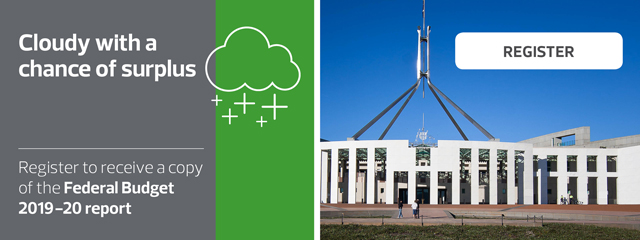The upcoming Federal budget will once again provide the opportunity for the Federal Government to focus on the future needs of the Australian economy.
The challenge for our politicians is to do just that – focus on the long-term interests of the nation rather than short-term political opportunism. Of course, the Federal budget is focussed on the succeeding year but notwithstanding that it provides an opportunity to introduce measures focussed on Australia’s long-term prosperity and economic sustainability.
Low wages growth has become a key issue in both the policy arena and for the economy more generally. Phillip Lowe, the Reserve Bank Governor, has noted that five years of low wages growth is hurting workers and threatening social cohesion. At the same time, Lowe noted that low growth in wages is contributing to low rates of inflation in Australia, real debt burdens stay higher for longer affecting spending decisions and reducing the contribution of household consumption to economic growth.
Ultimately, sustained growth in real wages is only possible if we become more productive as a nation. Multifactor productivity growth in recent years has been subdued and labour productivity has largely flatlined over the past four years. Kickstarting productivity growth requires the Federal Government to focus on reform. Fiscal policy is a good place to start.
It’s not just our Reserve Bank Governor that has ‘called out’ the need to boost Australia’s productivity.
In its recent report on Australia’s economic outlook, the International Monetary Fund (IMF) highlighted the need for policy reform to help raise the nation’s longer-term growth potential. The IMF also noted that whilst current infrastructure investment supports domestic demand growth, we still lag many other developed economies, therefore, scope exists to further expand infrastructure spending to stimulate productivity.
Regional Australia must also be an area of focussed infrastructure investment.
Whilst it is our nation’s heartland, regional investment in infrastructure is seriously lacking.
(For further information on regional infrastructure, read our latest report in the 2030 Big Picture Series, which focuses on economic opportunities for the South West of Australia and the need for increased infrastructure investment).
Tax reform is clearly back on the agenda.
Again, the IMF has identified the need for broad-based tax reform in Australia and a move towards more efficient taxes with stable bases whilst at the same time reducing the number of concessions. It identifies GST and land taxes as warranting further consideration in the context of achieving broad-based tax reform.
A more efficient tax system that attracts investment and rewards productivity must be the goal of any Government. That said, we need our politicians to look to the long-term future and in an environment of ever-increasing mobility of both capital and labour coupled with an ageing demographic, a genuine focus on achieving a long-term sustainable tax base is required. This means moving away from inefficient taxes and an over-reliance on income tax to a more sustainable and efficient base. This does not mean “cherry picking” populist tax policies on the run.
In its final pre-election budget, it will be interesting to see if the Government uses it as a platform to help create a long-term vision or a short-sighted political agenda. Boosting infrastructure spending, particularly in regional Australia combined with real policy reform measures will be a good start.
For more information
If you require further information or have any questions relating to low wages growth, contact your local RSM adviser today.
This article has been written with insight from Robin Barlow of Ninesquared. Robin can be contacted at [email protected]


